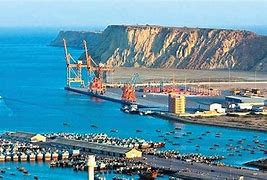Chinese Foreign Minister Wang Yi emphasized the need for a fair and just global governance system and the development of a shared future for humanity. He made these remarks on Saturday while briefing Chinese media about his recent diplomatic engagements, including visits to the UK and Ireland, participation in the 61st Munich Security Conference (MSC) in Germany, chairing a UN Security Council high-level meeting in New York, and attending the G20 Foreign Ministers’ Meeting in South Africa.
Wang highlighted that China will use the 80th anniversary of the United Nations as an opportunity to collaborate with global partners, drawing lessons from history to strengthen multilateralism, refine global governance, and advance the vision of a shared global future. He noted that as the world faces increasing instability in peace, development, and governance, global governance has reached a turning point.
According to Wang, the international community looks to the UN for solutions to global challenges and regional conflicts. As the rotating president of the UN Security Council in February, China convened a high-level meeting on “Practicing Multilateralism, Reforming and Improving Global Governance.” The meeting reaffirmed the UN’s founding principles, built consensus on multilateral cooperation, and reinforced the momentum for strengthening global governance.
Wang stated that participants agreed on the UN’s irreplaceable role and recognized that multilateralism is an irreversible trend. Reforming and enhancing global governance remains an urgent necessity. Addressing the MSC’s theme of multipolarity, Wang reiterated that despite global challenges, peace, development, and mutual cooperation remain dominant global trends. He emphasized that the shift toward a multipolar world and economic globalization is historically inevitable and already taking shape.
Wang stressed that China will act as a stabilizing force in this evolving multipolar system, playing a constructive role in global affairs. He noted that with the G20 Summit being hosted in Africa for the first time this November, this marks an “African moment” for both the G20 and global governance. This reflects significant changes in the international political and economic landscape.
At the G20 Foreign Ministers’ Meeting in Johannesburg, China advocated for prioritizing Africa’s concerns, supporting its development initiatives, and enhancing its role in global governance. Wang noted that this proposal received broad recognition. He reaffirmed China’s commitment to actively participating in G20 cooperation, supporting South Africa’s leadership, and urging all nations to focus on “Unity, Equality, and Sustainability” to align with the aspirations of the Global South.
Related Posts

















